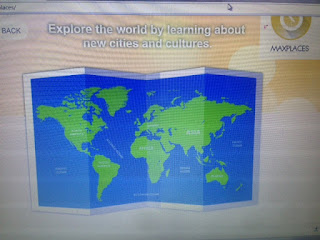They started by lightly spaying black over their paper, then white over the black and used crumpled paper to texture it, next they masked off a circle (lid/plate etc) and sprayed over in black paint.
To finish they sprayed their fingers and splattered white paint to make the stars.
A few kids took it a step further and created backdrops and landscapes to go with their moon.





















































